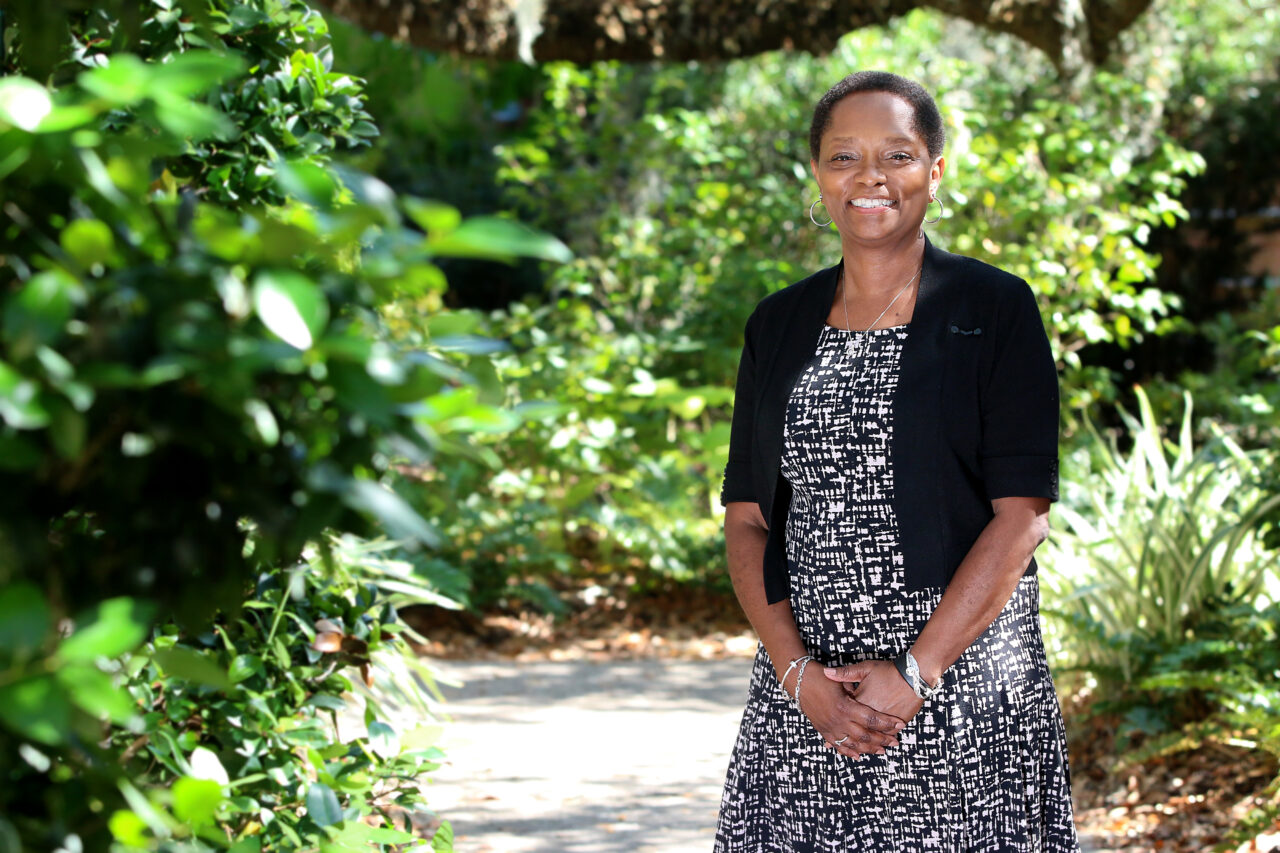Burnham-Williams Named VP for Equity and Inclusion

Willette Burnham-Williams’ goal in her new role as Wesleyan’s vice president for Equity and Inclusion is to be the best servant-leader she can be.
She has recently been appointed after a nationwide search that included the input of faculty, staff, and students. Burnham-Williams will begin on March 4.
“I come into this position to serve the students, but also to serve the faculty and my colleagues. For me, it’s about being someone who is there to support and advocate, and to collaborate and co-facilitate,” she said in a recent interview.
Burnham-Williams comes to Wesleyan from the Medical University of South Carolina (MUSC) where she served as Enterprise Chief Equity Officer. Prior to joining MUSC, she held leadership positions at Williamsburg Technical College, The Citadel Military College of South Carolina, and The College of Charleston.
“I am delighted to have Willette join the senior leadership team and I look forward to working with her to advance equity and inclusion at Wesleyan,” said President Michael S. Roth ’78. “I’d like to thank the faculty, students, and staff who served on the search committee under Provost Nicole Stanton’s leadership and extend my deepest thanks to April Ruiz and Debbie Colucci for co-leading the Office for Equity and Inclusion during this transitional period.”
Burnham-Williams plans to spend her first year at Wesleyan doing “a whole lot of listening.” “I want to learn the culture of Wesleyan and understand what it is that the students, faculty, and staff expect of the next leader in this position,” she said.
She counts her time at Trinity College in Hartford, another liberal arts institution, as some of the most formative in her life. It was through that experience that she learned how a liberal education like the one offered at Wesleyan can help young people learn how to be “citizens of the world.”
“I believe in the core principles of liberal education. Great equity and inclusion work unifies a community around common values, beliefs, and goals. When it really works, we create a community where its members are valued, respected, and can be their authentic selves without fear of retribution or critique,” she said.
Those moments of authenticity come, most often, in small ways, Burnham-Williams said. It isn’t always the splashy program bolstered by a lot of metrics that makes the biggest difference. By being an entrenched part of a campus community, Burnham-Williams can make the personal connections that sustain over a long period of time.
“Some of my most important experiences are the ones where any student I’ve met over the course of my 30-year career comes back to tell me that I’ll never know how much I changed their life. It’s about that individual, unexpected impact I’ve had on the lives of my students and my colleagues,” she said.
Burnham-Williams, a native of South Carolina, is looking forward to the joys of experiencing the New England seasons as well as continuing to do the work that she is so passionate about and making a significant contribution to Wesleyan.

